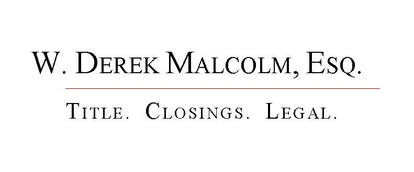Title Insurance.
|
Title insurance is typically the most misunderstood component of a real estate closing. To begin, title insurance is not the same thing as homeowners or hazard insurance. For most people, their home is the largest asset and the biggest financial investment they will make. To protect that investment, and to ensure that the investment is not lost because of a title defect, a homebuyer should purchase an owner’s title insurance policy whenever they buy a home. This section will explain the purpose and benefits of title insurance as well as
Title insurance compensates and provides legal representation to real estate owners and lenders against any financial loss that might arise because of undiscovered liens, encumbrances or defects in the title to the property. These defects can result in total losses, where a defective foreclosure or forgery means legal title is not actually conveyed, or they can result in partial losses where a neighbor’s garage or fence encroaches on the insured property. |
|
There are two basic types of title insurance policies. A lender’s policy, usually based on the dollar amount of the loan, protects only the lender's interests in the property should a problem with the title arise. Similarly, an owner's policy, usually based on the home’s total purchase price, protects only the homebuyer’s interests in the property should a problem with the title arise. An owner’s policy will provide protection against ownership challenges, errors or omissions in deeds, mistakes in examining records, missed liens, forgery and undisclosed heirs, among other things.
Unlike most other types of insurance, you pay a only one-time premium at the time of your home purchase for coverage that continues as long as you or your heirs own the property. You do not pay annual premiums, as you would with most other types of insurance. Depending on where you live, the cost of an owner’s policy is marginal when a lender’s policy is also being issued. This “simultaneous issue” discount means you do not pay full premium for owner's and lender's policies.
An example of how an owner’s policy protects homeowners recently occurred in Texas. A homebuilder was charged with defrauding first-time homebuyers by selling houses that were encumbered by undisclosed liens. When the builder subsequently failed to pay the debt, the creditors who were owed money started foreclosure proceedings and filed lawsuits against the home buyers. The developer sold the properties without home buyers realizing that their new houses were subject to undisclosed liens because they did not purchase title insurance. An owner’s policy would have paid to settle the dispute and covered any associated legal fees.
In all transactions, a search of public land records affecting the property is conducted to make sure a homeowner has clear title to their property. The title agent will scrutinize prior deeds or mortgages, divorce decrees, court judgments, delinquent taxes and child and spousal support payments, vesting, covenants, conditions and restrictions, general encumbrances, and utility or other kinds of easements. A history of ownership of the property is created, called an abstract, and steps may be taken to cure title issues that are discovered. This may include correcting recording and indexing errors in the public record, correcting misspelled names or incorrect legal descriptions. According to the American Land Title Association, the title insurance industry cures defects in public records in more than 35 percent of all transactions.
Some examples of documents that can present unexpected title issues include:
· Deeds, wills and trusts that contain improper wording or incorrect names.
· Outstanding mortgages and judgments, or a lien against the property because the seller has not paid his taxes.
· Easements that allow construction of a road or utility line.
· Pending legal action against the property that could affect a purchaser.
· Incorrect notary acknowledgements.
Some examples of issues which can present title claims under your policy include:
· A forged signature on the deed, which would mean no transfer of ownership to you.
· An unknown heir of a previous owner who is claiming ownership of the property.
· Instruments executed under an expired or a fabricated power of attorney.
· Mistakes in the public records.
The majority of the one-time title insurance premium covers the cost to discover, identify and repair issues caused by events that occurred in the past. Because of these preventive measures, title insurance is fundamentally different from all other forms of insurance, which charge annual premiums to provide insurance protection for future events. The curative work performed by title agents minimizes the fear, disruption and distress that title claims have on homeowners.
When property changes hands in the United States, it is through a private contract that is recorded in the public record. No matter the type of purchase, but especially a foreclosure, it is important that all documentation is in order. Commitment to accuracy and quality assurance is the foundation of title insurance. This commitment ensures fewer problems for homeowners and provides assurance that they won’t lose their investment.
Consumers have a choice when shopping for a provider of their title insurance related services. When selecting a title insurance provider, consumers should always consider the company's local expertise, service standards, market conduct and commitment to the local community. We write title insurance through Fidelity National Title Insurance Company, the largest, most financially secure title insurance provider in the country. This not only ensures the provision of second-to-none title insurance services, it also ensures peace of mind, knowing your family's largest financial investment is protected by the most financially secure title insurance company available.
More questions? Check out these helpful links:
Why Title Insurance?
Protecting Homeownership.
Common Title Problems.
Want to estimate how much your title insurance will cost? Click this link and enter your purchase price! And ask us about a simultaneous issue discount, which could lower your cost significantly!
